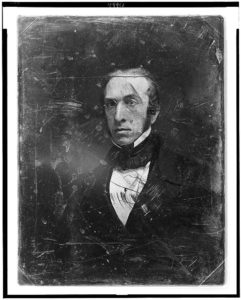 Hugo Grotius (1583-1645) was a Dutch lawyer, scholar, theologian, and author. His most noteworthy work, The Law of War and Peace, made him famous as the foremost authority on the law of nations, which we now tend to call international law.
Hugo Grotius (1583-1645) was a Dutch lawyer, scholar, theologian, and author. His most noteworthy work, The Law of War and Peace, made him famous as the foremost authority on the law of nations, which we now tend to call international law.
There is a statement attributed to Grotius that I wish I could document as actually emanating from him, but I haven’t found the source. I’ve read some of his Law of War and Peace, and the statement certainly sounds like something he might say. If anyone knows for sure if he said it, or if not, who did, I would welcome that information.
However, I’ve decided that even if Grotius didn’t write this, it’s so good that it needs to be shared. As I tell my students, if he’s not the author of this thought, then I’ll claim it for myself.
Here’s how it begins:
He knows not how to rule a kingdom that cannot manage a province; nor can he wield a province that cannot order a city; nor he order a city that knows not how to regulate a village.
Notice the progression. The concept is that one should not be given a greater realm of authority if he cannot handle a lesser realm. One must prove himself at a lower level before being granted more responsibility.
The statement continues:
Nor he a village that cannot guide a family; nor can that man govern well a family that knows not how to govern himself.
The principle keeps getting extended downward. Yet how many men and women in our day, particularly in politics, are awarded by the people with high office when they cannot even govern themselves?
Shall I insert here Senator Ted Kennedy, who drove a car off a bridge and swam away while the woman with him in the car (not his wife) was left to drown? The people of Massachusetts, in their electoral wisdom, made him a senator for life. Should that have been?
You would think the statement might end where I’ve already ended it, but it goes even further:
Neither can any govern himself unless his reason be lord, will and appetite her vassals; nor can reason rule unless herself be ruled by God, and be obedient to Him.
Will and appetite refer to desires/emotions—they need to be servants to one’s reason. Desires and emotions cannot drive one’s actions. Yet even reason, as we know, can go astray. Autonomous human reasoning is a mini-god itself. Therefore, our reason also has to submit to God and His loving rule.
 I call this the principle of self-government, and I’ve devoted a chapter to it in my book, If the Foundations Are Destroyed: Biblical Principles and Civil Government.
I call this the principle of self-government, and I’ve devoted a chapter to it in my book, If the Foundations Are Destroyed: Biblical Principles and Civil Government.
Proverbs 16:32 tells us, “He who is slow to anger is better than the mighty, and he who rules his spirit, than he who captures a city.”
There have been many “great” men in history, at least by standards other than God’s. On the outside, they may look like “winners,” but God looks at the heart.
A society with Biblical self-government at its roots, and that looks to place people in positions of civil authority whose lives reveal that self-government, will be a society substantially free from oppressive rules and regulations. Only a people not self-governed under God will turn to a strong civil government to hold themselves in check.
In truth, the people of a nation receive the type of government that their level of self-government deserves. What does this say about modern America? After all, our representatives, from local officials to congressmen to the president are merely a reflection of us.
One more quote—this one documented.
 Robert Winthrop (1809-1894), who served as speaker of the House of Representatives and also as a senator, gave an address to the Massachusetts Bible Society in 1849. What he said in that address is a fitting conclusion to the thoughts I want to share today:
Robert Winthrop (1809-1894), who served as speaker of the House of Representatives and also as a senator, gave an address to the Massachusetts Bible Society in 1849. What he said in that address is a fitting conclusion to the thoughts I want to share today:
All societies of men must be governed in some way or other. The less they may have of stringent State Government, the more they have of individual self-government. The less they rely on public law or physical force, the more they rely on private moral restraint.
Men, in a word, must necessarily be controlled, either by a power within them, or by a power without [outside] them; either by the Word of God or by the strong arm of man; either by the Bible or the bayonet.
May we be controlled by the Word of God and show ourselves worthy of self-government.
